Driven by both environmental protection and cost control, the shared linen model has gradually become a new choice for the hotel industry. This model of centralized washing and recycling the supply of linen through a third party seems to balance economy and sustainability, but the risks hi......
Driven by both environmental protection and cost control, the shared linen model has gradually become a new choice for the hotel industry. This model of centralized washing and recycling the supply of linen through a third party seems to balance economy and sustainability, but the risks hidden behind it cannot be ignored. From hygiene and safety to brand image, any hidden dangers in every link may affect the long-term development of the hotel.
一、 Hygiene and Safety: A hidden Concern that is hard to eradicate
The core contradiction of shared linen lies in "cleanliness during circulation". Linen is recycled among different hotels and guests. If the washing and disinfection process is not standardized - for example, insufficient water temperature, too short disinfection time, or improper detergent ratio - it is very easy to become a carrier for the spread of bacteria and viruses. Even if it is visible to the naked eye as "clean", there may still be hidden contaminants such as dander and sweat remaining, which may raise guests' doubts about hygiene standards. More importantly, the tolerance of different guests to cleanliness varies significantly. A uniform washing standard is difficult to meet the needs of everyone, and the risk of hidden complaints always exists.
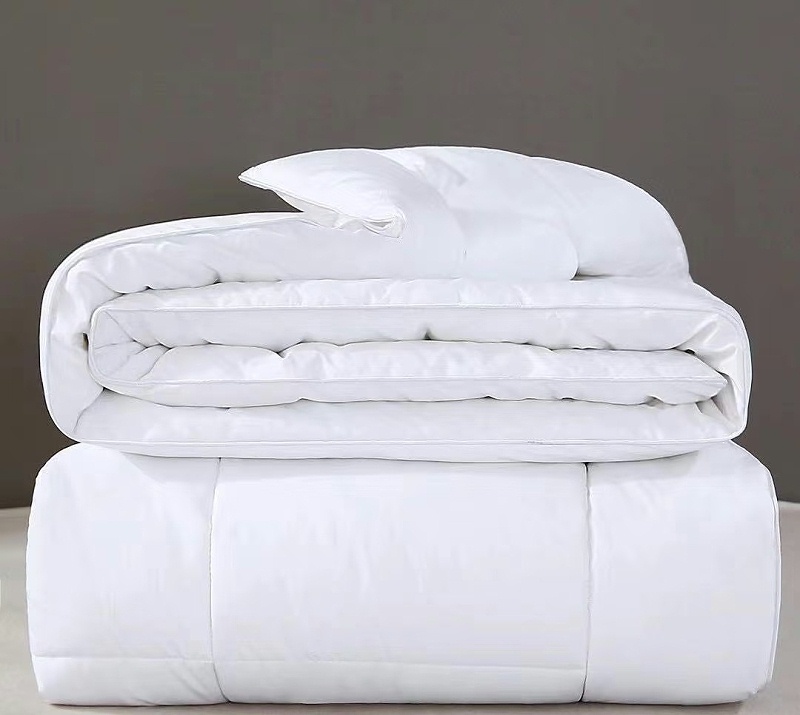
二、quality out of control: Accelerated loss and reduced experience
The service life of linen is directly related to the frequency and process of washing. In the shared mode, third parties, in pursuit of efficiency, may adopt high-intensity washing methods, which can cause damage to the fibers of the linen, pilling, thinning, and even wear at the edges and corners. The hotel is unable to supervise the washing process in real time, nor can it control the maintenance details of the linen. Eventually, it can only passively accept the decline in quality of the linen. When guests come into contact with rough bed sheets or deformed pillowcases, their impression of the hotel will be greatly reduced, which in turn will affect their willingness to repurchase.
三、Service Dependency: Potential Risk of Operational Disruption
Adopting shared linen means that hotels hand over key links in the supply chain to third parties, and this high degree of reliance hides hidden dangers. During the peak tourist season, if a third party experiences equipment failure, logistics delay or insufficient manpower, it may lead to a shortage of linen supply, directly affecting the turnover of guest rooms. What's more serious is that if the washing quality suddenly drops, hotels will find it very difficult to switch suppliers in a short period of time. They can only make a hard choice between "compromising use" and "temporarily cutting off supply", which will ultimately affect normal operations.
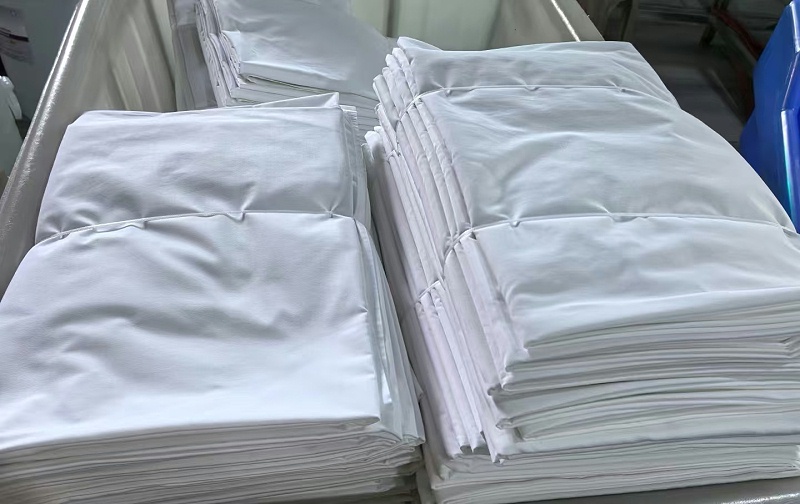
四、Lack of personality: Weakening of brand recognition
High-end hotels often convey their brand tone through details such as the material, color matching, and embroidery of the linen. However, shared linen, in pursuit of versatility, mostly adopts uniform white or light-colored basic styles, which cannot meet the demands of personalized design. For boutique hotels or theme homestays that emphasize "unique experiences", such "undifferentiated linen" will dilute brand recognition, making it difficult for guests to form a memorable point, which is contrary to the hotel's differentiated positioning.
五、Cost Trap: A Game between short-term Savings and Long-term Losses
The "low cost" advantage of shared linen is actually a double-edged sword. Although it can initially reduce the hotel's equipment investment (such as washing machines and dryers) and labor costs, in the long run, rental fees and washing unit prices may rise along with market fluctuations. What is more concealed is that some third parties set a "minimum consumption limit". Even if the hotel's occupancy rate is low, a fixed fee still needs to be paid, which instead increases the cost of idleness. If customer complaints are triggered by linen issues, the subsequent compensation and public relations costs will be incalculable.
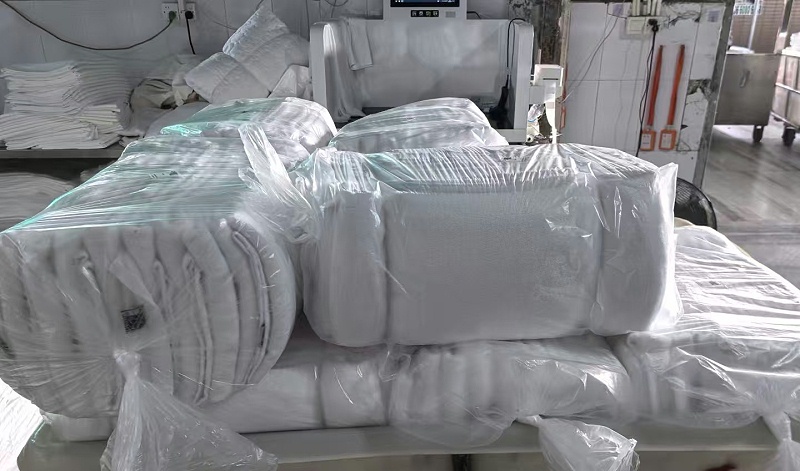
六、 Environmental Disputes: The Truth of Pollution Beneath the Guise of Energy Conservation
Although shared linen claims that "centralized washing is more environmentally friendly", its actual environmental impact should be viewed dialectically. Frequent logistics transportation (linen shuttling between hotels and laundries) will increase carbon emissions. To ensure turnover efficiency, third parties may overuse chemical detergents, resulting in excessive sewage discharge. This "environmental protection for the sake of environmental protection" model may instead conflict with the hotel's green brand image.
七、Trust Crisis: After-sales Response and Brand Backlash
When the linen has problems such as stains not being washed clean or damage, the hotel needs to communicate with a third party to hold them accountable, but the definition of responsibility between the two sides is often ambiguous. If the after-sales response is slow or the responsibility is shirked, the guests' dissatisfaction will be directly directed at the hotel rather than a third party. A negative review of "the bed sheet has stains" spreading on social media platforms may quickly escalate into doubts about the hotel's overall service, damaging the brand's reputation.
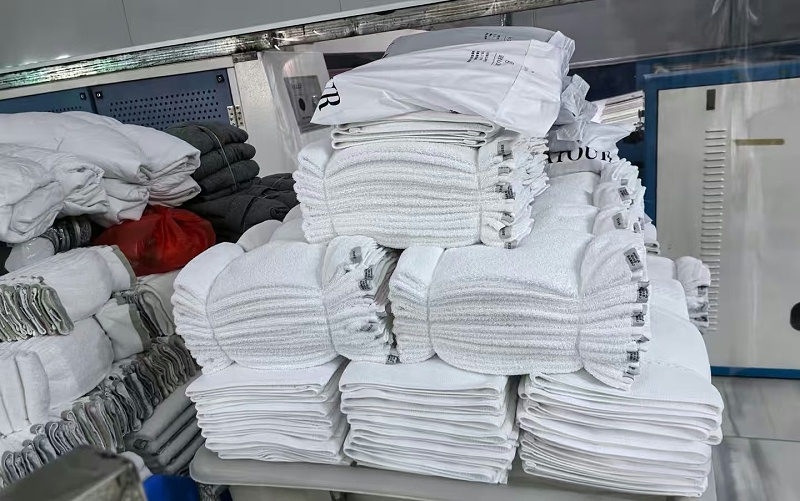
Rational choices for hotels
Sharing linen is not absolutely unacceptable, but hotels need to establish strict screening criteria: giving priority to third parties with complete qualifications and transparent washing processes, and signing clear quality and compensation terms. Regularly spot-check the cleanliness of linen and keep washing records for traceability. At the same time, assess your own positioning - mid-to-high-end hotels need to carefully balance brand image and cost, while economy hotels can try under strict supervision.
Ultimately, linen is the "invisible business card" of hotel services. No matter which mode is chosen, ensuring hygiene, quality and guest experience is the core. Blindly following the trend of sharing linen may not be worth it. Only by making rational decisions based on one's own needs can a balance be struck between cost and reputation.
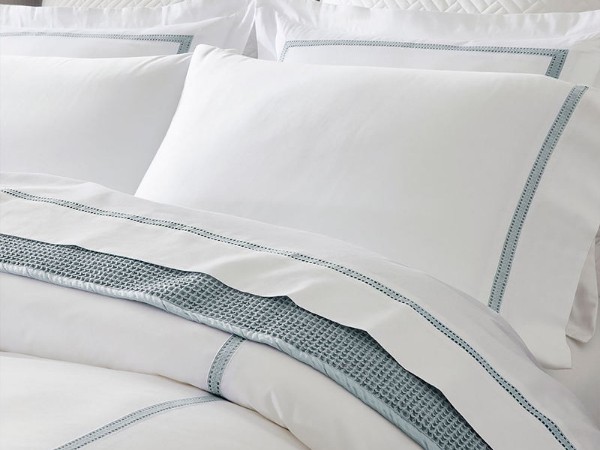
Towel Brand:MOFISI Material:100% Cotton Size:customizable Process:embroidery Features:Warm and breathable

Towel Brand:MOFISI Material:100% Cotton Size:customizable Process:embroidery Features:Warm and breathable
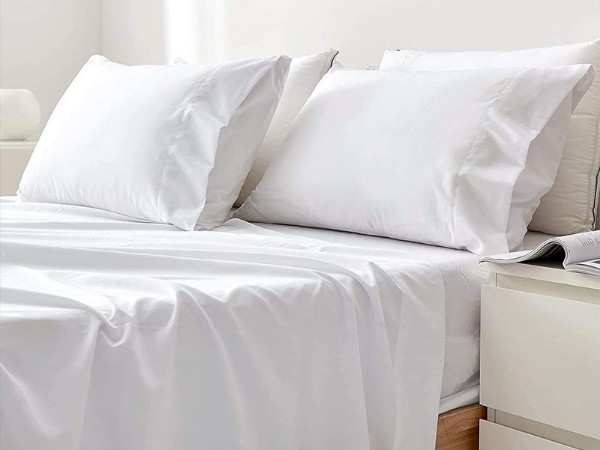
Towel Brand:MOFISI Material:100% Cotton Size:customizable Process:embroidery Features:Warm and breathable